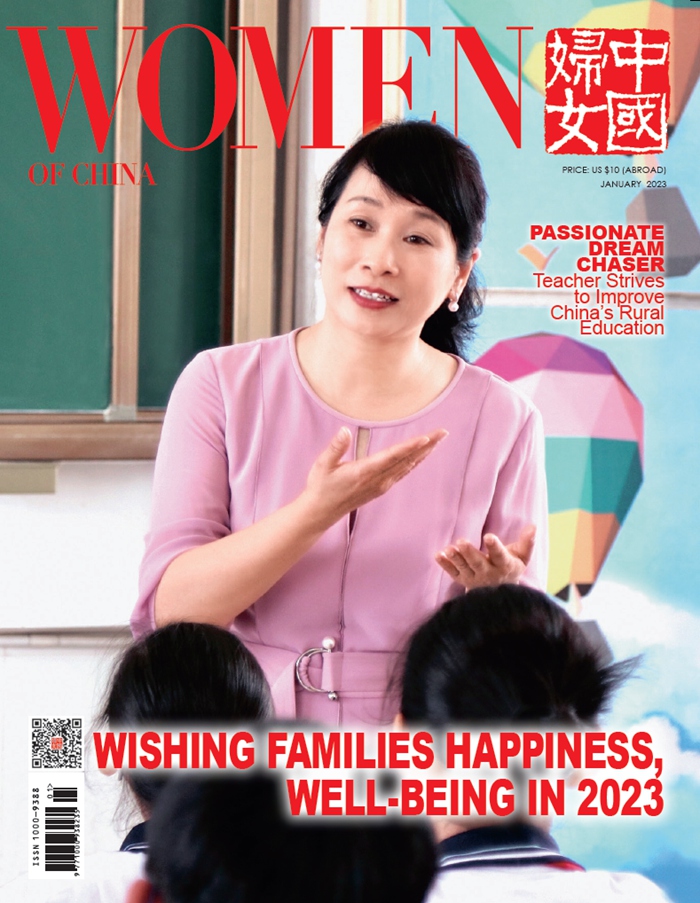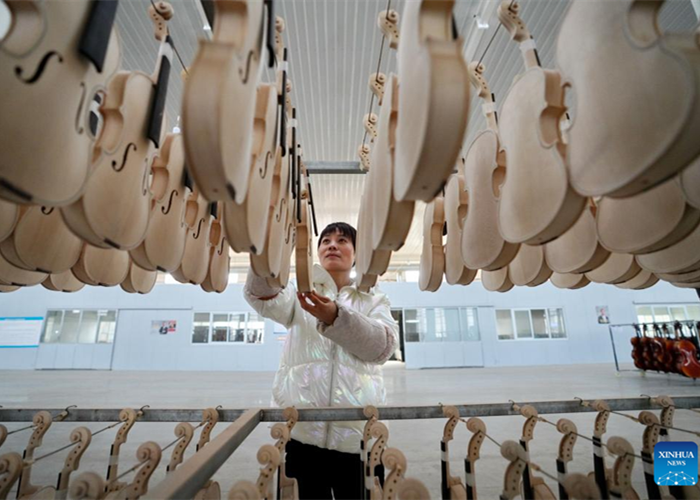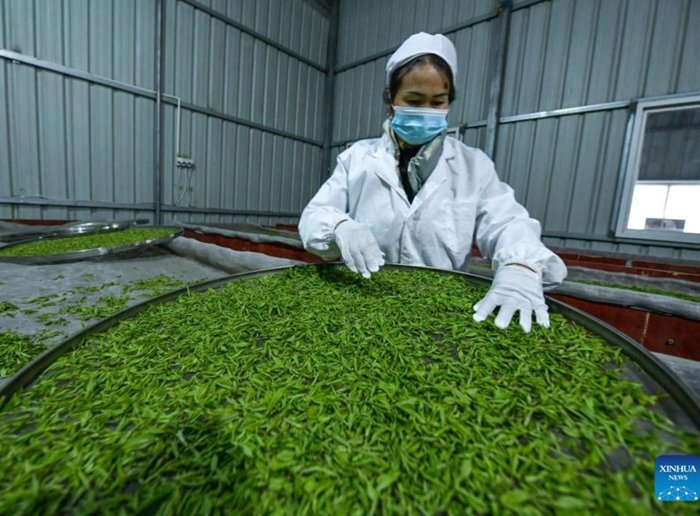Growing Great Grapes with Less Labor
High-tech methods and breeding experiments are producing sweeter varieties
Wang Suqing has personal experience of what a tough, labor-intensive business grape growing was 30 years ago. Her parents relied on all family members, even the youngsters, to pick the grapes at their vineyard in Jiyuan, Henan Province.
The 38-year-old recalled how she and her brother helped their parents carry an old pesticide spray can into the vineyard in summer. At night, her father slept between the rows of vines to guard the grapes from foraging animals.
When the grapes were ripe, the whole family picked and packed them to sell at weekend markets. There was also the risk they would start rotting or be eaten by bugs before they were sold, said Wang, who helped out at the market.
"We didn't differentiate between varieties, and 1 kilogram only sold for 2 yuan," Wang said.
Today, Wang is deputy general manager of the Malu Grape Research Institute and the Malu Grape Theme Park in Shanghai, which is ushering in a new era in viticulture.
Cleaner Product
Modern grape production has a higher level of automation, more sophisticated development of varieties and uses fewer pesticides and chemical fertilizers.
The changes have resulted in sweeter grapes that command higher prices. Wang studied horticulture in college and fruit tree cultivation at Huazhong Agricultural University in Wuhan, Hubei Province.
Before graduating in 2008, she was offered an internship at the Malu Grape Research Institute, which produces the best grapes in China.
"When I first got to the institute, I knew nothing about the features of the dozens of grape varieties," Wang recalled. "I thought it would be difficult to learn them all. But gradually I got to know them one by one, just like making the acquaintance of people."
Wang can now recite the names of more than 50 different types of grapes grown in the park in large quantities and knows the intricacies of cultivating each variety.
In April, the park opened a museum of grapes. Wang spent a day placing more than 200 name tags on the different varieties to help educate visitors. "We want people who come to the garden not only to pick grapes, but also become knowledgeable about them," she said.
In 2012, Wang participated in a breeding experiment on the popular Jufeng grape variety to improve its taste. She spent a month working in the greenhouse nipping the unwanted buds every day.
The grapes produced at the park are sold for 80 yuan (US$11) per kg.
Because of their popularity and high quality, grapes grown in Malu township are protected by a geographical designation issued by the State Administration for Industry and Commerce in 2014, which prohibits the use of the name Malu for grapes produced elsewhere.
High-tech Approach
Since September 2018, Wang has been working with Tongji University on applying internet-of-things technology to grape growing.
The technology and equipment, which are provided by the university, allow for an interconnected network to exchange data to improve grape production.
Wang said it was a growing trend to use such technology in agriculture as automation helped solve the workforce problem because young people are not attracted to the industry. Under the project, which covers 10 hectares, sensors are installed in the soil and inside and outside greenhouses.
By monitoring the weather, humidity and soil and air temperatures, the smart greenhouses can open and close windows, lift and drop down shade cloths and spray water and pesticide automatically or by remote control.
"Now we only need two farmers to monitor the data on mobile phones. This saves working time and improves the different varieties of our grapes," Wang said.
She said people can also trace the origins of the grapes if they are concerned about food safety.
Shan Tao, general manager of the institute, said he has hired many graduate students in the past years, but most of them left after a few years. "Young college students from rural areas want to leave the sector, but Wang has devoted herself to grapes and learned everything from scratch," Shan said. "She is a role model for all our staff."
In 2013, Wang gave birth to a girl she named Guoli, which means a "single grape". "I am grateful for the grape garden," she said. "In the past 12 years, I have fallen in love with my work, and I hope my daughter loves grapes in the future, too."
(Source: China Daily)
Please understand that womenofchina.cn,a non-profit, information-communication website, cannot reach every writer before using articles and images. For copyright issues, please contact us by emailing: website@womenofchina.cn. The articles published and opinions expressed on this website represent the opinions of writers and are not necessarily shared by womenofchina.cn.








 WeChat
WeChat Weibo
Weibo 京公网安备 11010102004314号
京公网安备 11010102004314号